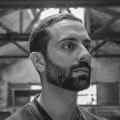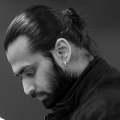
Digitization at its simplest refers to the translation of analogue information into digital information. With rapid advancements in the capabilities and tools of digitization, it’s becoming increasingly possible to virtually translate and store nearly every aspect of life in digital form, moving closer to the networked interconnection of everyday objects. Further allowing us to transform and evolve information in real time, via a global exchange of information between multiple connected devices. The GSS18 Barcelona aims to introduce participants to research in design to production – centered around the two major nodes of human and technological advancement, allowing the user to explore design by establishing a dynamic workflow between matter and robotic fabrication.
How can we enable citizens interacting with their cities ?
What comes after Smart cities and smart citizen ?
The workshop aims to explore a series of methodologies looking to incorporate advanced design thinking, generative algorithms and dynamic material feedback to existing industrial processes, accompanied with novel interfaces for robotic programming and large-scale automated construction. Articulated to challenge the quality of feedback between design, matter and making. During the workshop participants will have the opportunity to explore form finding strategies through digital tools and scale model making which later on will be built as a series of digitally fabricated architectural elements in 1:1 scale, embedded with smart sensorial interaction.
Global Summer School programme will run from the 2nd to the 14th of July 2018: workshops, lectures and prototyping will happen at the same time in different geographic areas worldwide.
IAAC Global Summer School is a full-time two weeks course, 2-14 July 2018, that provides both practical and theoretical knowledge. The program is led by expert tutors, combined with lectures by renowned professionals and academics relevant to the http://armodexperiment.com topics to be treated during the course. These will be broadcasted in the different node-cities, all globally connected. Participants will join a global agenda and an international laboratory at their disposal to test their design hypothesis, understanding how design conclusions derived locally can be tested and evolved globally in the different cities where other teams reside.

see more

see more
Cristian Rizzuti is an interactive media artist working in Barcelona and Rome. Graduating in Visual and Multimedia Art, Cristian has achieved an M-IA Master course at IUAV University of Venice focusing on interactive immersive environments. After his studies, Cristian has presented his works in major events and locations in Europe, such as Sonar Barcelona, MAXXI museum Rome, Venice Biennale, ZKM museum Karlsruhe. Always inspired by Science and mathematics, Cristian has focused his personal investigation on the role of human perception and the definition of synesthetic spaces and emotional sounds connected to the body. Being inspired by digital arts, live media and interactive experiments, Cristian’s works can be described as light sculpture installations.

see more
Kunaljit Singh Chadha is an Indian architect and Digital and Robotic fabrication researcher. His early work experience at Menis Arquitectos (Canary Islands, Spain) helped him develop his curiosity towards materiality in architecture. To further investigate in this domain he pursued his masters at the Institute for Advanced Architecture of Catalonia (IAAC) in Spain and he joined the IAAC R+D department in 2016.. His research interests involve synthesis of material knowledge with fabrication techniques and has been involved with various researches with biodegradable materials using robotic fabrication.
The Institute for Advanced Architecture of Catalonia (IAAC) is an international centre for Education, Fabrication and Research dedicated to the development of architecture capable of meeting the worldwide challenges in constructing 21st century habitability. Based in the 22@ district of Barcelona, one of the world’s capitals of architecture and urbanism, as well as the European Capital for Innovation (2014), IAAC is a platform for the exchange of knowledge with researchers, faculty and students from over 60 countries around the world. The Institute develops multidisciplinary programs that explore international urban and territorial phenomena, with a special emphasis on the opportunities that arise from the emergent territories, and on the cultural, economic and social values that architecture can contribute to society today. IAAC has also made its name as a centre of international reference, welcoming students and investigators from different countries among which Australia, the USA, India, Brazil, Russia, Ethiopia, all European countries and many others.
IAAC GSS is open to creative and innovative people who are interested in fields such as architecture, urban planning, digital fabrication, design, etc., searching for a multidisciplinary experience in an international environment. No previous skills are required, although CAD design, programming and digital fabrication skills are welcome. The official language of the course is English.
After the course, the participants will have gained theoretical and applicative knowledge about advanced design strategies. They will be familiar with parametric software, data visualization and use of digital machines. The last day of course participants will join a presentation of developed projects reviewed by a renown jury and will receive a Global Summer School Diploma.
Each participant is responsible to investigate which documents are required via the embassies in their country of origin. The school will provide a confirmation letter regarding the participation to the course, and will assist where possible the visa process.
Fee for Barcelona is 1500€ and includes all material costs needed for the course. No additional registration fee is required. Flight tickets, accommodation and food are not included in the fee. Each participant should bring his/her own computer with the software installed. Further details about the software will be given to the participants upon acceptance.
In order to register to the Global Summer School, participants need to submit the online application form, where they will be asked to fill their personal details and to upload a CV. Portfolio is not required. GSS18 dates are from 2-14 of July 2018 and applications are open until the 27th of June 2018.